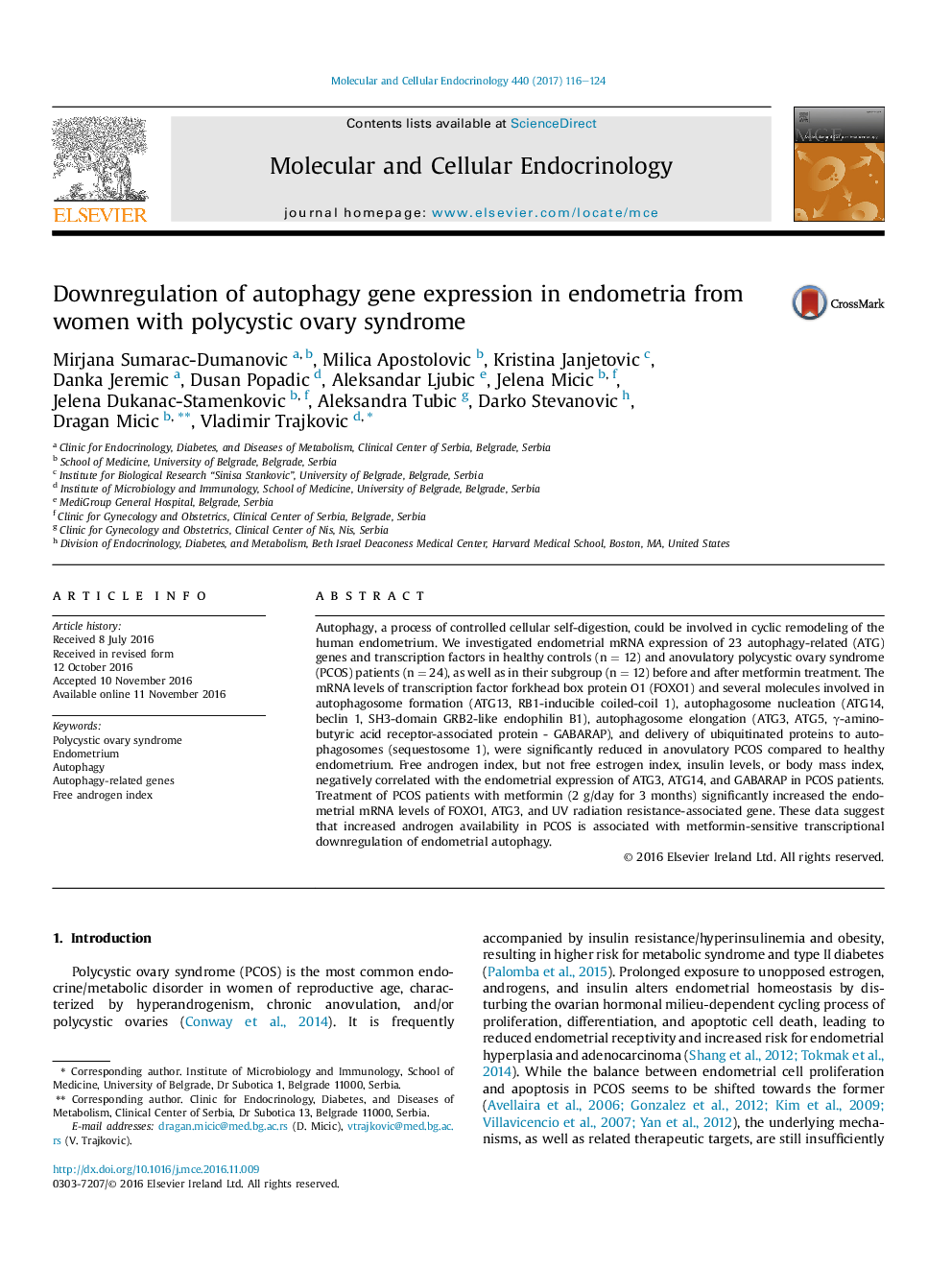| کد مقاله | کد نشریه | سال انتشار | مقاله انگلیسی | نسخه تمام متن |
|---|---|---|---|---|
| 5534106 | 1550839 | 2017 | 9 صفحه PDF | دانلود رایگان |

- Endometrial expression of several autophagy-related genes is reduced in PCOS.
- Free androgen index negatively correlates with autophagy gene expression in PCOS.
- Metformin treatment partly restores autophagy gene expression in PCOS endometrium.
Autophagy, a process of controlled cellular self-digestion, could be involved in cyclic remodeling of the human endometrium. We investigated endometrial mRNA expression of 23 autophagy-related (ATG) genes and transcription factors in healthy controls (n = 12) and anovulatory polycystic ovary syndrome (PCOS) patients (n = 24), as well as in their subgroup (n = 12) before and after metformin treatment. The mRNA levels of transcription factor forkhead box protein O1 (FOXO1) and several molecules involved in autophagosome formation (ATG13, RB1-inducible coiled-coil 1), autophagosome nucleation (ATG14, beclin 1, SH3-domain GRB2-like endophilin B1), autophagosome elongation (ATG3, ATG5, γ-aminobutyric acid receptor-associated protein - GABARAP), and delivery of ubiquitinated proteins to autophagosomes (sequestosome 1), were significantly reduced in anovulatory PCOS compared to healthy endometrium. Free androgen index, but not free estrogen index, insulin levels, or body mass index, negatively correlated with the endometrial expression of ATG3, ATG14, and GABARAP in PCOS patients. Treatment of PCOS patients with metformin (2 g/day for 3 months) significantly increased the endometrial mRNA levels of FOXO1, ATG3, and UV radiation resistance-associated gene. These data suggest that increased androgen availability in PCOS is associated with metformin-sensitive transcriptional downregulation of endometrial autophagy.
Journal: Molecular and Cellular Endocrinology - Volume 440, 15 January 2017, Pages 116-124